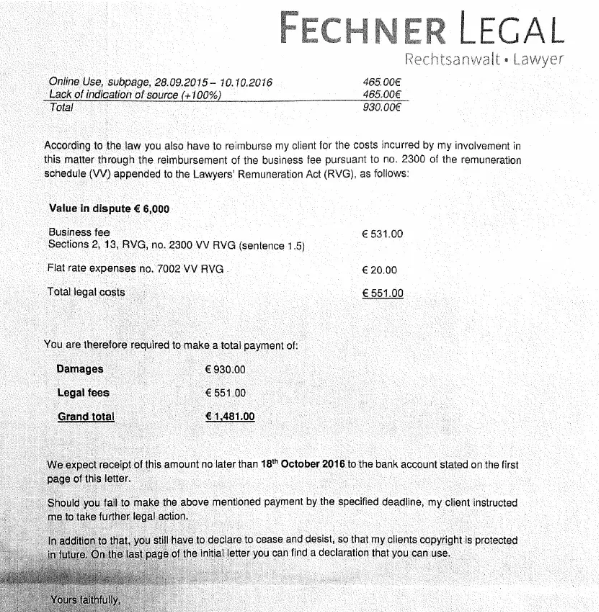[Most Recent Entries] [Calendar View]
Tuesday, September 17th, 2019
| Time | Event |
| 9:55a | Swiss Copyright Law: Downloading Stays Legal, No Site Blocking  Sitting in the heart of Europe geographically but outside the European Union politically, Switzerland is largely free to make its own legislation. On the copyright front, this has brought the country out of line with standards adopted by its neighbors, something that has drawn criticism from entertainment industry companies, particularly those in the United States. In 2017, proposals to amend the country’s copyright laws were drafted but they failed to fully address key complaints from the United States Trade Representative (USTR) made on behalf of rightsholders. A major complaint is that the country’s private copying exception shouldn’t apply to content obtained from illegal sources, i.e pirate copies of movies circulating on peer-to-peer networks such as BitTorrent. The USTR also had issues with the current liability framework for sites and hosting services that facilitate and profit from piracy. After a long trip through the corridors of power, Switzerland’s National Council adopted amendments to copyright law Monday but at first view, there seems little to please the United States. First up, regular citizens who download copyrighted content from illegal sources will not be criminalized. This means that those who obtain copies of the latest movies from the Internet, for example, will be able to continue doing so without fear of reprisals. Uploading has always been outlawed and that aspect has not changed. Second, the drive to have pirate site-blocking introduced into Swiss law has been rejected. Unlike elsewhere in Europe, where the practice is widespread and supported by EU law, ISPs will not be required to block ‘pirate’ platforms as some copyright holders had demanded. On the hosting and liability front, there will be changes, but at this early stage, it’s unclear how that will play out on the ground. SwissInfo reports that the reforms will force local hosting providers to remove illegal content from their servers but adds that parliament rejected rules that would compel online platforms to check whether uploaded content is copyrighted. A “take-down-stay-down” system had been championed (which would presumably require content to be checked against previous takedowns) but elsewhere it’s claimed that the new legal framework “favors self-regulation” to fight piracy at the hosting level. While an extension from 50 to 70 years copyright protection for musical and photographic works will be welcomed by copyright holders, the failure to outlaw downloading of pirated content for personal use will be absolutely unacceptable to the United States and the MPAA in particular. Source: TF, for the latest info on copyright, file-sharing, torrent sites and more. We also have VPN reviews, discounts, offers and coupons. |
| 6:46p | EasyDNS Threatened With Criminal Complaint over ‘Pirating’ Customer  Over the past several years, the Canadian company easyDNS has come up in several piracy-related news articles. The company’s domain registrar activities, in particular, have been a topic of discussion. Not least because it serves high-profile customers, including The Pirate Bay. EasyDNS CEO Mark Jeftovic has always made it very clear that he doesn’t want his company to be a refuge for pirate sites. However, at the same time he is committed to protecting due process. This became clear a few years ago when the company refused to suspend domain names based on allegations from the City of London Police. This stance was repeated later when the RIAA asked easyDNS to suspend The Pirate Bay’s domain, which it refused to do without a court order. These examples show that easyDNS is no stranger to legal pressure, but a recent request from a German law firm was a bit over the top, even by easyDNS’ standards. The company recently received a copyright notice from the German law firm Fechner Legal, ordering easyDNS to take down a URL of one of its clients who allegedly posted a copyright-infringing image. In addition, the notice came with a settlement offer, urging the registrar to pay €1,481 in damages and fees.  The letter, which was initially sent to the wrong email address years ago, came through the postal mail. EasyDNS has no plans to pay up or expose its customer, as the law firm requested. However, it did send a reply asking for a digital copy so it could be forwarded to its customer, as is standard practice. Instead of sending over the requested digital copy, the law firm replied with a threat. Citing German jurisprudence, attorney Robert Fechner urged easyDNS to hand over the name and email address of the allegedly-infringing customer, or else. The” or else,” in this case, would come in the form of a criminal complaint. “If you fail to comply with the law, further proceedings will be to file a criminal complaint against you in order to acquire this information on the basis of § 14 II TMG. In this case, additional damages due to your uncooperative and unlawful behavior will be claimed.” Fechner wrote. Despite the threat of a criminal complaint, easyDNS still doesn’t plan to hand over the name and email address of its customer. The company’s CEO stresses that it only complies with the law of the country where it’s incorporated, which is Canada. Simply handing over personal information might violate Canadian privacy law, easyDNS stresses. This means that, if Fechner Legal wants the personal information of the customer in question, it has to obtain a valid court order, subpoena or warrant in the Province of Ontario. “It’s almost as if Herr Fechner doesn’t understand that Canada is a completely different country than Germany, and thus businesses operating here are subject to Canadian, not German law,” Jeftovic notes. “We have further advised Herr Fechner that both easyDNS and our lawyers take a dim view of being threatened with a criminal complaint over something like this and we wonder out loud if the German bar association would have anything to say about one of their own abusing their position and misrepresenting the law in this manner,” he adds. In any case, it’s clear that as a third-party registrar, easyDNS isn’t going to take any action without a proper court order. This means that the allegedly infringing URL remains online for now, just like The Pirate Bay. Source: TF, for the latest info on copyright, file-sharing, torrent sites and more. We also have VPN reviews, discounts, offers and coupons. |
| << Previous Day |
2019/09/17 [Calendar] |
Next Day >> |